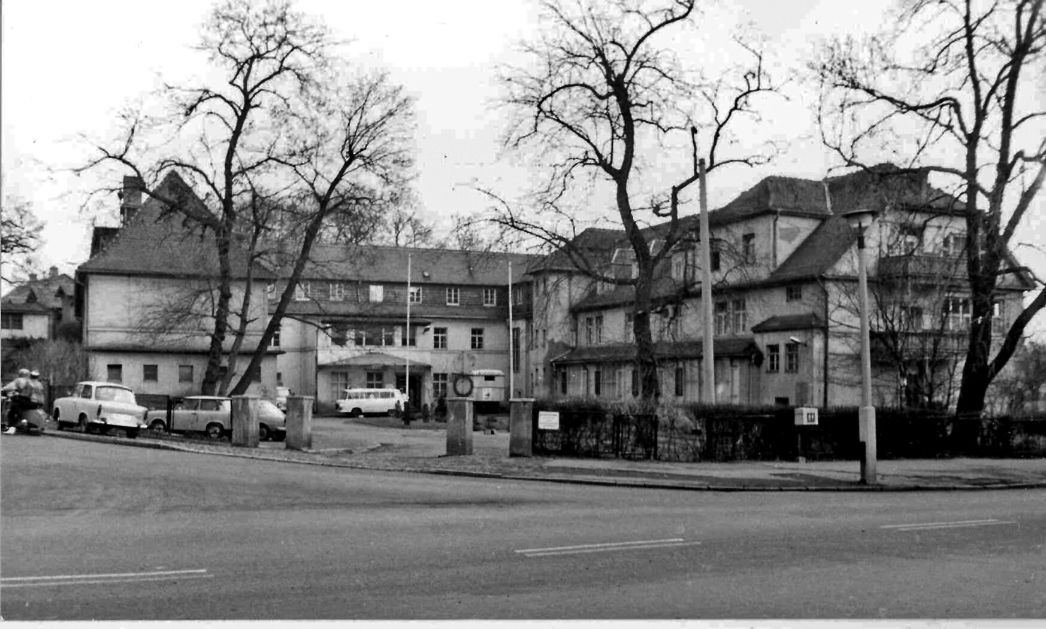
Weimar's municipal hospital had been located on the northern slope of the Kirschberg since 1832; only the right wing of the building remains today. Prisoners and SS men from the concentration camp were also treated here until the Buchenwald concentration camp hospital was built. The inmates were admitted due to infectious diseases, work injuries or gunshot wounds. The hospital staff were able to get an idea of the situation in the concentration camp from the injuries. In order to rid the German "national body" of "harmful genetic material", forced sterilizations of hundreds of prisoners who had been made infertile in accordance with the "Law for the Prevention of Hereditary Diseases" also took place here until 1939. The verdict was handed down by a "hereditary health court", which became active at the request of the committing authority, e.g. the Gestapo or the camp doctor of the Buchenwald concentration camp. In addition to the prisoners, citizens from Weimar - at least 700 people between 1934 and 1943 - were also forcibly sterilized following similar court proceedings. Social conspicuousness - which could also include homosexuality - or the possible inheritance of diseases could be sufficient grounds for infertilization. In addition, at least one hundred forced abortions were carried out on Polish, Russian and Ukrainian forced laborers in the municipal hospital between 1943 and 1945 in order to prevent a shortage of labourers. The hospital existed until the 1990s. Large parts of the dilapidated building were demolished as part of a conversion project for the Weimar police station.
